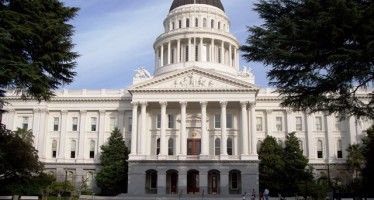Weedmaps decides to stop listing illegal cannabis retailers

Irvine-based Weedmaps – the very popular website that guides cannabis fans to stores – recently announced it would stop listing illegal retailers later this year. The decision is a rare dose of good news for the legal marijuana industry in California.
The Weedmaps site features information on the products offered by hundreds of sellers in the Golden State, details on the special sales they are offering, information on different products and consumer reviews of dispensaries and their inventories. It is considered such a key part of the marijuana scene in California that one legal seller told the Los Angeles Times that its decision to not list illegal stores would wipe out 80 percent of them.
The Newsom administration has been pressuring Weedmaps for months to stop listing illegal stores, which far outnumber legal stores in the Golden State. Because they don’t pay taxes – and don’t cover expensive safety packaging and product testing – illegal shops can have a price advantage of 40 percent or more on legal dispensaries.
Legal shops decried unfair competition
After Proposition 64 passed in 2016 – legalizing the sale of recreational marijuana in California as of Jan. 1, 2018 – the legal cannabis industry’s initial complaints were about the slowness of the state in providing permits to pot shops and about the refusal of three-quarters of cities and counties to authorize such shops.
But as 2018 unfolded, the focus of complaints shifted to what legal stores saw as deeply unfair competition from illegal stores. As CalWatchdog reported, state officials announced in February that only $345.2 million was generated in revenue from sales, excise and cultivation taxes in 2018 – about a third of what was expected. This led the state’s Cannabis Advisory Committee to blast the “fragmented and uncoordinated” law enforcement response to illegal cannabis sales.
This and other complaints led Gov. Gavin Newsom to seek and receive an increase of at least 74 percent in enforcement funding in the 2019-20 state budget, which will allow the state to add more than 200 new enforcement and compliance positions by July 2020.
The legal industry in recent months has been heartened by efforts in Los Angeles to target illegal dispensaries by turning off their utilities and citing not just shop owners and employees but landlords. There have also been raids in Mendocino, Sonoma, Siskiyou, Trinity and Riverside counties that seized nearly 300,000 marijuana plants being grown without a license. Authorities also seized 20 tons of cannabis in June in Santa Barbara County, which has unexpectedly emerged as a major growing area since Proposition 64’s passage.
Analyst: Illegal shops’ market share growing
But the good news was followed by a report this month from BDS Analytics, which tracks cannabis sales data, that illegal stores appeared to be increasing their market share in California. As of June, state residents were buying three times more marijuana from illegal stores than legal ones.
Industry experts say illegal shops don’t just have a pricing advantage. Since many emerged after California voters approved the sale of marijuana for medicinal purposes in 1996, they had a 20-year head start on legal sellers in establishing relationships with growers and building customer bases.
But Newsom, for one, never expected a smooth start to the legal California cannabis industry. In 2016, while campaigning for Proposition 64, he said he believed it would take the industry “five to seven years” to hit its stride after legal sales began.
Chris Reed
Chris Reed is a regular contributor to Cal Watchdog. Reed is an editorial writer for U-T San Diego. Before joining the U-T in July 2005, he was the opinion-page columns editor and wrote the featured weekly Unspin column for The Orange County Register. Reed was on the national board of the Association of Opinion Page Editors from 2003-2005. From 2000 to 2005, Reed made more than 100 appearances as a featured news analyst on Los Angeles-area National Public Radio affiliate KPCC-FM. From 1990 to 1998, Reed was an editor, metro columnist and film critic at the Inland Valley Daily Bulletin in Ontario. Reed has a political science degree from the University of Hawaii (Hilo campus), where he edited the student newspaper, the Vulcan News, his senior year. He is on Twitter: @chrisreed99.
Related Articles
Californians slash water use by 27.3 percent in June
Motivated by a fourth year of drought — and mandatory water cuts — Californians reduced urban water use by 27.3 percent in June,
Sen. Huff: People are sick of partisan politics
2016 started with a bit of a bipartisan bump with Senate Pro Tem Kevin de León and former Senate Republican
Directly drinking treated wastewater could be in Californians’ future
For the first time, California regulators have warmed to the idea of directly serving up treated sewer water to




